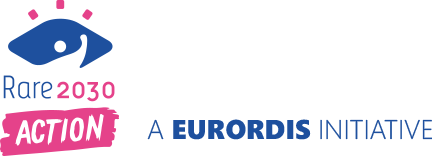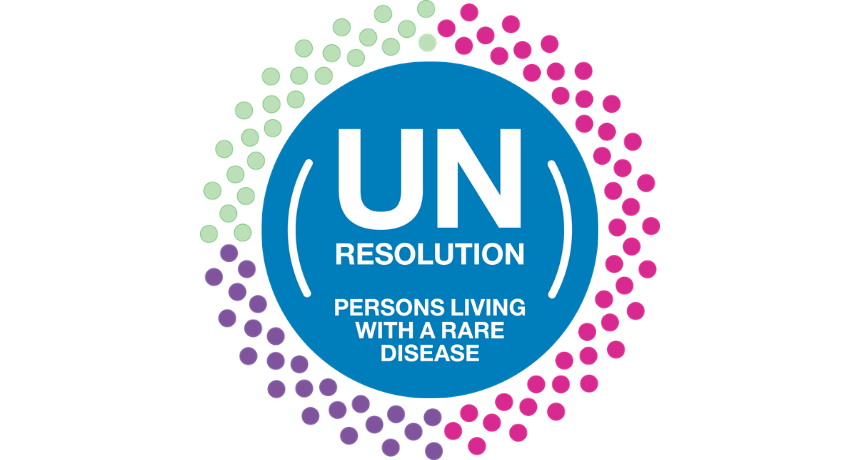EURORDIS and Rare Diseases International have launched, respectively, campaigns for European and International Action on rare diseases.
The #30millionreasons for a new European rare disease policy framework campaign has been launched by Eurordis, backed by the eight recommendations of the Rare 2030 participatory foresight project, that recommend a fundamental policy shift that would update the current policy framework, move it to a goals-based plan and ensure to celebrate and protect the individual rights of every citizen.

The #30millionreasons campaign is a platform for public, civil society and private sector, academia and policy makers to share their reasons and raise awareness for coordinated European action in the area of rare diseases. This campaign, relayed by the rare disease community through social media using the hashtag #30millionreasons, urges all concerned stakeholders and citizens to share their reason for a renewed European rare disease policy framework, to be sent to Ursula von der Leyen, President of the European Commission. Although the European Commission is in the position to initiate the legislative process, all of the European rare disease community needs to express their opinions and aspirations for the next decade.
“Addressing unmet needs and inequalities is critical to realising the full potential of the 30 million people with rare diseases in Europe,” Anna Kole, EURORDIS Public Health Policy Director said. “We need to show the collective drive of the rare disease community to set out why we need a cohesive strategy at the European level right now. The Rare 2030 Foresight Study showed us that only through active design of new policies will we reach our community’s goals. Working together, we can make this difference”.
Indeed, it is hoped that a renewed European dynamic, spanning different policy areas, in the post-COVID world, will help European Member States align towards the same goals and ultimately contribute to the United Nations 2030 Agenda for Sustainable Development.

In the same vein, Rare Diseases International recently launched a call for an UN Resolution to address the challenges faced by those living with rare diseases and their families, in line with UN Sustainable Development Goals on human rights and equity. A social media campaign around the hashtag #Resolution4Rare is underway.
Amongst the key asks for this UN Resolution are:
- Inclusion and participation in society of people living with rare diseases and their families
- Improvement of health and social outcomes with the appropriate care support within existing resources
- Promotion of national strategies and actions
- Integration of rare diseases into UN agencies, programmes and priorities
- Regular reports by the UN secretariat to monitor progress on implementation
A Core Group of UN Member States (Brazil, Spain and Qatar) is championing the adoption of the UN General Assembly Resolution in 2021. A group of supportive Member States is growing, and includes countries in Africa, Asia and Europe. RDI encourages all 193 Member States of the UN General Assembly to join the call and adopt the UN Resolution this year. On 7th July 2021 a side-event at the UN High-Level Political Forum on Sustainable Development (HLPF) was held to discuss how work to address challenges faced by those living with a rare disease can help advance the UN 2030 Agenda, with the final goal of “leaving No One Behind”. 300 participants from 61 countries were present at the event opened by Her Majesty Queen Letizia of Spain, and Their Excellencies Michelle Bolsonaro, First Lady of Brazil, and Damares Alves, Minister for Women, Family and Human Rights of Brazil.
Her Majesty Queen Letizia of Spain conveyed her country’s support: “Spain fully supports this UN Resolution which, we trust, will generate the proactive readiness and commitment of all so that rare diseases have a much less painful and much less disabling impact on people’s lives. This is our responsibility”.
Words of support were also given by Craig Mokhiber Director of the New York Office of the Office of the United
Nations High Commissioner for Human Rights (OHCHR), “My central message is one of encouragement, and I do so from a deep conviction that your hope to uphold the rights of people living with a rare disease is of central importance to the UN 2030 Agenda and commitment to the Sustainable Development Goals”.
You can find more information and tools to get involved on the RDI website. A video has also been produced to explain this call. Stakeholders are also encouraged to provide testimonies during the awareness raising campaign aimed at the UN through the ‘Dear UN’ initiative.
- To read more about “UN Resolution campaign”
- To read more about “UN Resolution Press Release”
(source: OrphaNews 09 July 2021)